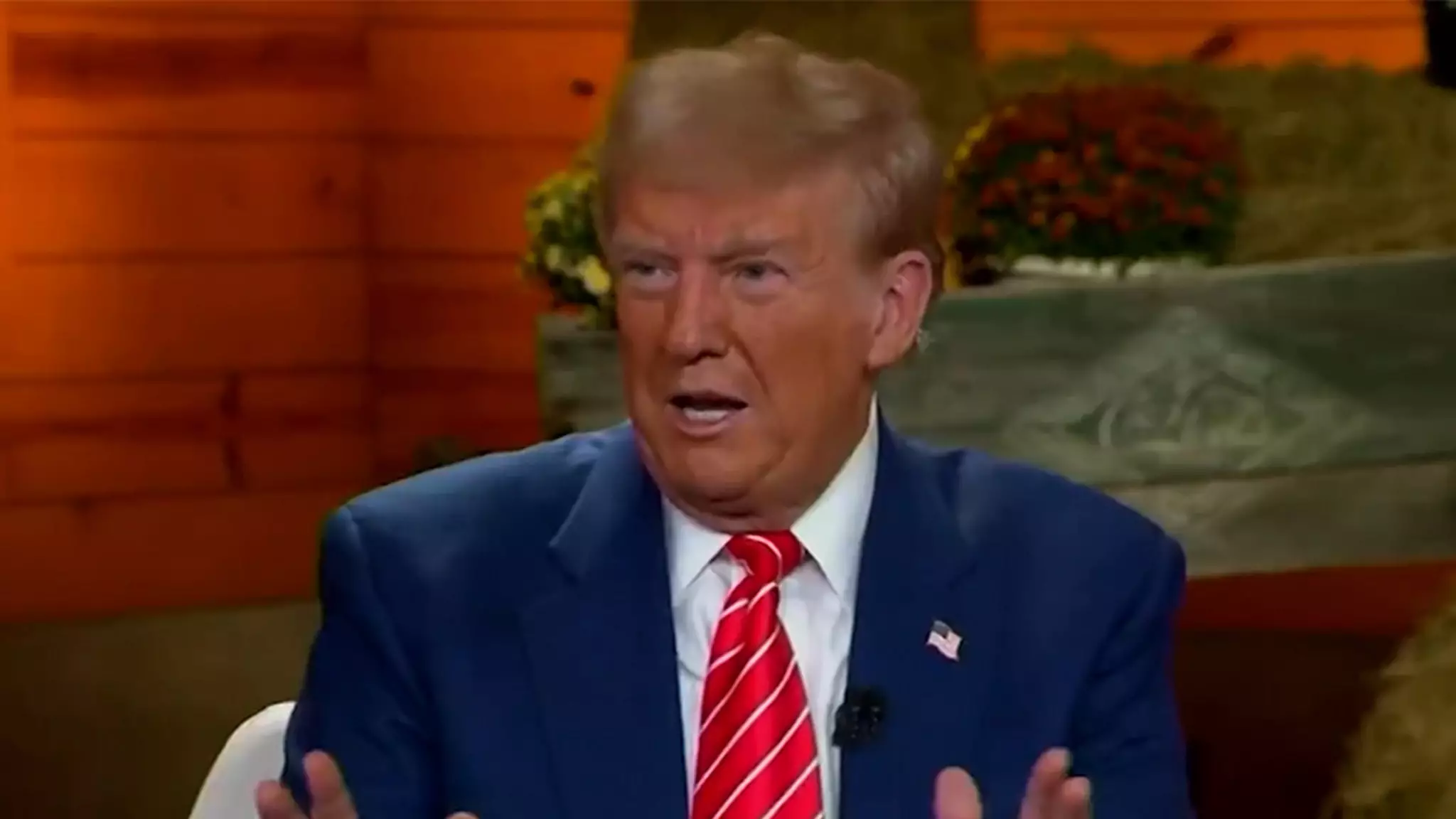In a recent Fox News town hall in Georgia, Donald Trump once again sparked debates with his comments directed towards a prominent female politician. Speaking about U.S. Senator Katie Britt, Trump described her as a “fantastically attractive person from Alabama,” which raised eyebrows and elicited mixed reactions online. While it’s not uncommon for politicians to make personal remarks about each other, framing a political figure’s qualifications alongside their appearance can be particularly detrimental when trying to engage an audience of female voters.
Adding to the intrigue of the evening, Trump boldly claimed the title of “the father of IVF,” which is a striking assertion for someone who has not actively contributed to reproductive technology advancements. This statement may convey Trump’s intent to align himself with women’s issues; however, it risks oversimplifying the complexities surrounding reproductive rights and technology. It’s important to recognize that the political implications of such claims hold significant weight in shaping public perception about healthcare issues, especially those directly impacting women’s lives.
During the town hall, an audience member brought up the topic of abortion rights and the legal jurisdiction concerning reproductive technologies, asking if IVF regulation should also fall under state rather than federal governance. Trump’s reaction, pivoting to discuss Britt’s struggles with Alabama’s judicial decisions regarding IVF, highlights a crucial aspect of reproductive health debates today—state-level regulation and its implications for accessibility. The Alabama Supreme Court’s decision earlier this year to classify embryos created via IVF as children has significantly impacted the operations of IVF clinics, effectively complicating access to reproductive care in that state.
The juxtaposition of Trump’s praise for Britt’s appearance with his political rhetoric surrounding IVF and women’s rights is problematic. A sentiment expressed by political analysts suggests that this approach may alienate rather than attract female voters who seek leaders that value their professional achievements rather than reduce them to physical attributes. Missteps like these evoke historical patterns where women’s appearances overshadow their professional contributions, thus undermining their roles in political discourse and leadership.
As Trump positions himself for the upcoming election cycle, his engagement with women’s issues will likely remain paramount for his campaign. However, it is critical that such discussions prioritize women’s rights and reproductive healthcare without devolving into superficial commentary. The recent comments may provide insight into Trump’s approach and how he navigates complex topics in front of diverse audiences, but they also raise questions about the effectiveness of such a strategy. Engaging in serious discussions about reproductive technology and rights through a lens of respect and gravity is essential for any political figure hoping to resonate with contemporary issues facing women today.

